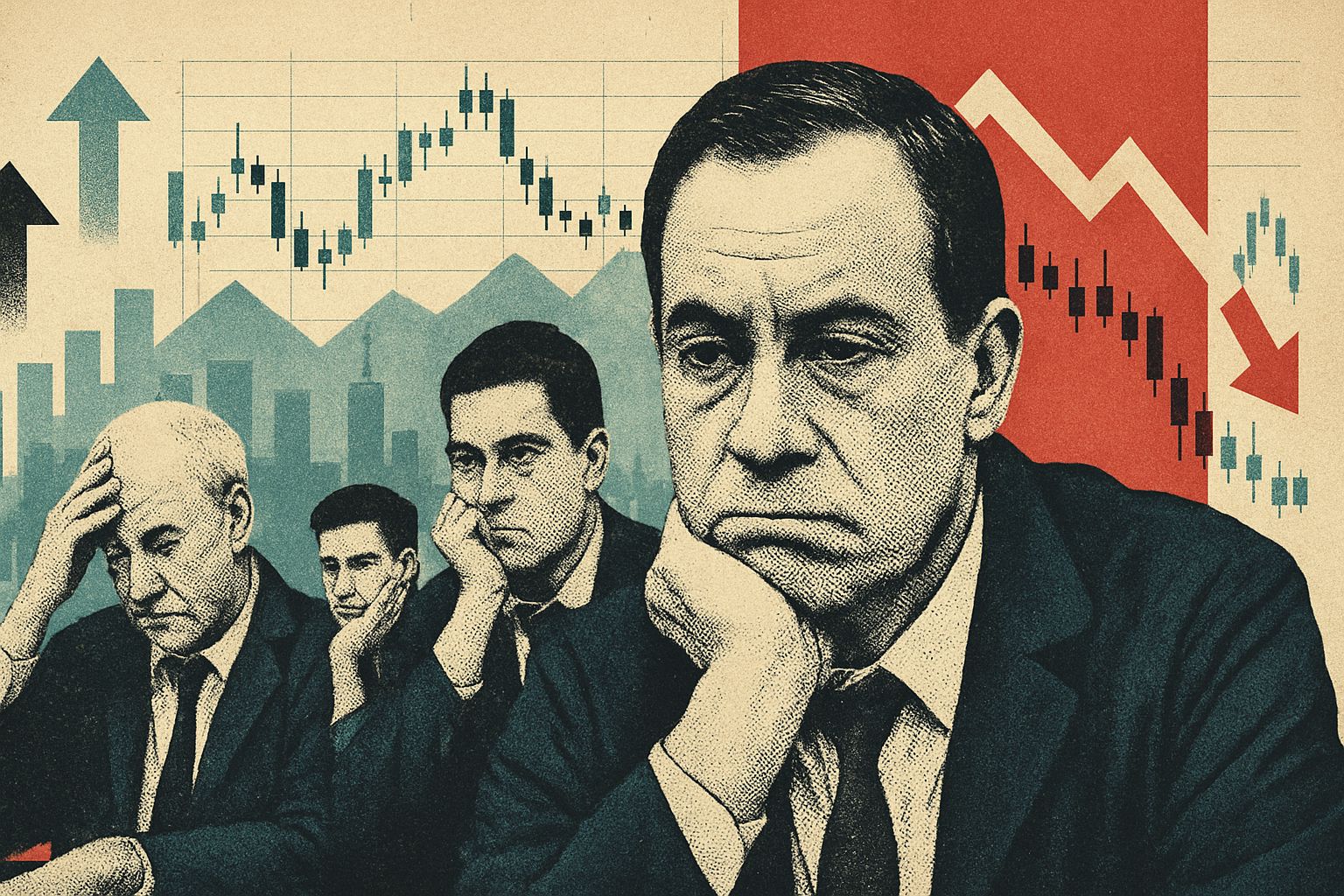Welcome back, investors. Heading into September of last year, markets saw 75% odds for a rate cut. This morning, odds for a cut 12 months later now hover at 89%, though the economy today looks very different than it did in 2024.
That said, September is reliably the weakest month of the year for stocks, according to history.
The season is turning
The stock market has rewarded investors plenty this summer.
The S&P 500 just secured its best Memorial Day-to-Labor Day stretch of the last four decades, according to FactSet. But history points to a turning point beginning this week.
Dating back to 1950, the benchmark index averages a 0.68% loss in September, making it the weakest month of the year.

September is the weakest month of the year historically (Chart courtesy of Exhibit A)
When you compress the timeline to the last 10 years, investors have seen an average loss of 2% in September.
Strategists chalk this up to various factors, though the consistent weakness could be chalked up to old-fashioned self-fulfilling prophecy — investors expect a bad month and so sell stocks, which ends up being the catalyst for lower returns.
To be fair, US stocks are in the midst of an above-average year compared to the typical years as well as post-election years.
Indeed, the S&P 500 gained 1.9% in August and notched multiple record highs despite uncertainty related to the Fed, trade policy and weakness in the labor market.

Yet according to data from Bank of America, when the S&P 500 hits a record in August, September finishes lower 61% of the time with an average decline of 0.81%.
BofA strategists also noted that:
September drawdowns are shallower following a record high in August compared to other years
Second half of September is weaker than the first half for stocks
S&P 500 in September during the first year of a presidential term is the weakest of all four years
Real estate stocks are up just 39% of Septembers, the worst among the 11 sectors

Meanwhile, this month in 2025 brings a particular cocktail of catalysts:
Questions on Fed independence
Rate cut expected at the September 17 FOMC meeting
Ongoing updates with President Trump’s tariffs
Japan’s bond market is flashing warning signs
All told, the data make a compelling case for turbulence in the weeks ahead.
A message from FranShares:
Acquiring great businesses takes time, capital and operational muscle.
FranShares lets you invest passively in portfolios of profitable franchise locations run by experienced operators, so you can add recurring, real‑world cash flow without doing another full-time job.
FranShares pools investor capital to back multi‑unit expansions in nationally recognized brands like Dunkin’ and Pizza Hut, then distribute income and share exit upside.
Diversify beyond equities, skip the day‑to‑day operational grind and track results with transparent reporting.
Market snapshot

Elsewhere
❌President Trump isn’t happy with India. He called the US’ relationship with India a “disaster” on Monday, saying it has been heavily one-sided for decades: “They sell us massive amounts of goods, their biggest ‘client,’ but we sell them very little.” (Yahoo Finance)
📈 Gold and silver prices are rising. Both metals moved higher over the long weekend, and the former hit a record in London on Monday. Over the past three years, gold and silver have each more than doubled, with the latest gains stemming from rate-cut expectations. (Bloomberg)
🚢 The “de minimis” exemption is no more. President Trump closed this long-standing loophole, and analysts expect it to hit stocks including UPS, FedEx, and DHL. Those companies handled more than 1.3 billion de minimis packages shipped to the US last year. (CNBC)
🤖 Mindstream is how 200,000+ readers keep on top of AI. The daily newsletter delivers actionable insights and news you need to know to stay ahead of the curve and maximize AI in your life. The best part? It’s completely free. Get smarter on AI in minutes a day.
Rapid-fire
Core inflation ran at 2.9% in July, the highest since February (CNBC)
Emerging market stocks rallied as US markets were closed for Labor Day (Bloomberg)
Chinese, Russian and Indian leaders pledged to cooperate at the Tianjin summit (WSJ)
JPMorgan says bitcoin treasury companies are helping bring down bitcoin’s volatility (Yahoo Finance)
President Trump called on pharma companies to “justify the success” of their COVID drugs (CNBC)
Home buyers considering adjustable-rate mortgages could see relief with a Fed rate cut (Barron’s)
Nvidia is set to get a huge revenue boost from OpenAI with next-gen data centers (Barron’s)
Young software engineers face an existential job market (Blog)
Inventory for unsold new completed homes sits at the highest level since 2009 (ResiClub)
Unlock the trades of elite fund managers
The best investors outperform the S&P 500 for a reason. We give our Best Ideas Club members direct access to their highest-conviction stock picks, every Sunday.
Our Best Ideas Club portfolio has nearly doubled the S&P 500 so far this year.
Last thing
About me
📰 I’m Phil Rosen, co-founder and editor-in-chief of Opening Bell Daily. I’ve published books, lived on three continents, and won awards for my journalism, which has appeared in Business Insider, Fortune, Yahoo Finance, Bloomberg and Inc. Magazine.
I write our flagship newsletter to prepare you for each trading day — unpacking markets, economic data and Wall Street with analysis you won’t find anywhere else.
Feedback? Reply to this email, ping me on X @philrosenn, or write me directly at [email protected].


